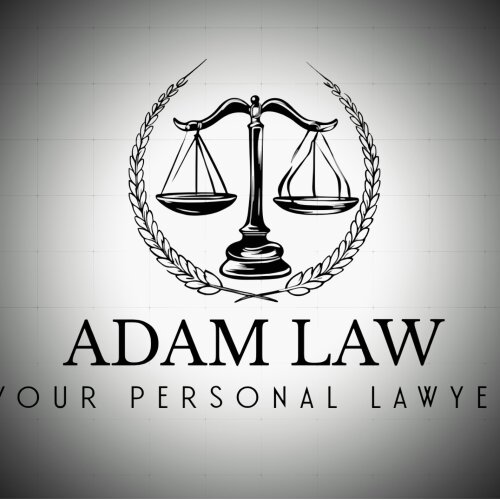
Best Antitrust Litigation Lawyers in Sweden
Share your needs with us, get contacted by law firms.
Free. Takes 2 min.
Or refine your search by selecting a city:
List of the best lawyers in Sweden

About Antitrust Litigation Law in Sweden
Antitrust litigation in Sweden involves legal processes related to the enforcement of competition laws that aim to protect free and fair competition in the market. Swedish antitrust laws prohibit businesses from engaging in anti-competitive practices, such as cartels, abuse of dominant positions, and illegal mergers or acquisitions. These laws are governed by the Swedish Competition Act (Konkurrenslagen) and are enforced by the Swedish Competition Authority. Sweden’s position within the European Union also means its antitrust legislation is closely aligned with EU competition rules.
Why You May Need a Lawyer
Legal support is crucial when dealing with antitrust litigation because of the complexity of competition laws and the potentially serious consequences of violation. Individuals and businesses may need a lawyer in situations such as:
- Suspected involvement in a price-fixing cartel or other anti-competitive agreement
- Facing investigations or dawn raids by the Swedish Competition Authority
- Accusations of abusing a dominant market position
- Challenging merger decisions or merger control issues
- Pursuing or defending private damages claims arising from antitrust violations
- Seeking guidance on compliance with competition laws to prevent future violations
- Advising on agreements or joint ventures which may raise competition concerns
Local Laws Overview
Sweden’s antitrust legal framework is primarily based on the Competition Act (2008:579). Key aspects include:
- Prohibition of Anti-Competitive Agreements: Agreements or collusion between businesses that restrict competition are prohibited, such as price-fixing, market sharing, or bid-rigging.
- Abuse of Dominance: Companies with significant market power must not exploit their position in a way that limits competition, for example by imposing unfair prices or sales terms.
- Merger Control: Significant business mergers or acquisitions may require notification to the Swedish Competition Authority if certain thresholds are met, to ensure they do not harm competition.
- National and EU Law Alignment: Swedish law implements and operates alongside EU competition law, meaning some cases may be handled under both legal frameworks.
- Enforcement and Sanctions: Breaches can result in administrative fines, orders to cease certain behaviors, or even liability for damages in private litigation.
Frequently Asked Questions
What is considered anti-competitive behavior under Swedish law?
Anti-competitive behavior includes actions such as price-fixing, market sharing, limiting production, bid-rigging, or abusing a dominant market position to exclude competitors or harm consumers.
Which authority is responsible for enforcing antitrust laws in Sweden?
The Swedish Competition Authority (Konkurrensverket) enforces competition laws and investigates suspected violations.
Can I report a suspected antitrust violation?
Yes, individuals or companies can report suspected anti-competitive behavior directly to the Swedish Competition Authority, which may launch an investigation.
What happens during an antitrust investigation?
Investigations may include requests for documents, information, and sometimes unannounced inspections (dawn raids). The process is formal and can lead to administrative or legal actions.
What penalties exist for violating antitrust laws?
Sanctions can include significant fines, requirements to terminate illegal agreements, and in some cases, civil damages liability. Involvement in cartels may also lead to criminal liability for individuals.
How are mergers regulated in Sweden?
Business mergers or acquisitions that exceed certain turnover thresholds must be notified to the Swedish Competition Authority for clearance before completion.
Can I seek compensation if my business was harmed by an antitrust violation?
Yes, businesses and consumers harmed by anti-competitive practices can file a claim for damages through the Swedish courts.
Is legal counsel required during an antitrust investigation?
While not mandatory, legal counsel is strongly recommended to help safeguard your rights and responsibilities during investigations and any subsequent litigation or appeals.
How long do antitrust cases usually take?
The duration can vary significantly depending on the complexity of the case. Investigations can take several months to years and litigation may extend this further.
Are Swedish antitrust laws different from EU competition law?
Swedish laws are closely aligned with EU competition law and cases may be assessed under both systems, especially when cross-border activities are involved.
Additional Resources
If you are seeking further information or guidance regarding antitrust litigation in Sweden, consider contacting or researching resources such as:
- Swedish Competition Authority (Konkurrensverket) - publishes guidelines, decisions, and educational materials on competition law
- Swedish Courts (Sveriges Domstolar) - information about litigation procedures and relevant judgments
- European Commission Directorate-General for Competition - useful for EU-level cases or cross-border issues
- Swedish Bar Association (Sveriges advokatsamfund) - to find qualified competition law attorneys
- Trade and industry associations, which sometimes offer compliance resources and training on competition law
Next Steps
If you need legal assistance in an antitrust matter in Sweden, consider these steps:
- Identify the specific details of your situation, such as the nature of the alleged anti-competitive conduct or your involvement in a merger.
- Contact the Swedish Competition Authority if you need to report a concern or wish to receive guidance on procedures.
- Consult with an attorney who specializes in competition law to assess your rights, obligations, and any potential exposure to liability.
- Gather relevant documents and evidence, as these will be essential in any investigation or litigation.
- Consider whether you need to make notifications (such as merger notifications) or implement compliance measures within your business.
Taking early action and seeking expert legal counsel can help protect your interests and ensure you comply with all relevant antitrust laws in Sweden.
Lawzana helps you find the best lawyers and law firms in Sweden through a curated and pre-screened list of qualified legal professionals. Our platform offers rankings and detailed profiles of attorneys and law firms, allowing you to compare based on practice areas, including Antitrust Litigation, experience, and client feedback.
Each profile includes a description of the firm's areas of practice, client reviews, team members and partners, year of establishment, spoken languages, office locations, contact information, social media presence, and any published articles or resources. Most firms on our platform speak English and are experienced in both local and international legal matters.
Get a quote from top-rated law firms in Sweden — quickly, securely, and without unnecessary hassle.
Disclaimer:
The information provided on this page is for general informational purposes only and does not constitute legal advice. While we strive to ensure the accuracy and relevance of the content, legal information may change over time, and interpretations of the law can vary. You should always consult with a qualified legal professional for advice specific to your situation.
We disclaim all liability for actions taken or not taken based on the content of this page. If you believe any information is incorrect or outdated, please contact us, and we will review and update it where appropriate.
Browse antitrust litigation law firms by city in Sweden
Refine your search by selecting a city.















